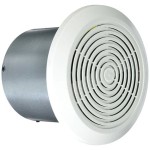How to Lay Bathroom Tiles
Tiling a bathroom is a rewarding project that can upgrade the look of your home and increase its value. Whether you're a seasoned DIYer or a complete novice, this comprehensive guide will provide you with the step-by-step instructions and expert tips you need to achieve professional-looking results.
Materials and Tools You'll Need:
* Tiles * Thinset mortar * Grout * Tile spacers * Level * Tile cutter * Notched trowel * Sponges * Bucket * Mixing paddle * Safety glassesStep 1: Preparation
Before you begin tiling, it's crucial to ensure that your bathroom is properly prepared. This includes removing any existing fixtures or flooring, cleaning the subfloor thoroughly, and making sure it is level. If necessary, you may need to level the floor using a self-leveling compound.
Step 2: Layout and Dry Fit
Start by dry-fitting the tiles to determine the best layout. Make sure to take into account the size of the tiles, any patterns you möchten create, and the space available. Once you're satisfied with the layout, remove the tiles and mark the grout lines with a pencil or chalk.
Step 3: Apply Thinset Mortar
Using the notched trowel, spread a thin layer of thinset mortar onto the subfloor. Hold the trowel at a 45-degree angle and apply the mortar in smooth, even strokes. Be sure to cover the entire area where the tiles will be placed.
Step 4: Set the Tiles
Carefully align the first tile with the grout lines and press it into the thinset mortar. Use a level to ensure that the tile is level and use tile spacers to maintain uniform spacing. Repeat the process for all the tiles, working your way from one corner of the bathroom to the other.
Step 5: Cut Tiles for Corners and Edges
When you reach corners or edges, you'll need to cut tiles to fit. Use a tile cutter to score and snap the tiles to the desired size. Be precise with your cuts to ensure a clean and professional finish.
Step 6: Let the Mortar Dry
Allow the thinset mortar to dry completely before grouting. The drying time may vary depending on the type of thinset used, so consult the manufacturer's instructions.
Step 7: Grout the Tiles
Prepare the grout according to the manufacturer's instructions. Using a grout float, apply the grout into the spaces between the tiles. Press the grout firmly in place, making sure to fill all the joints completely. Remove any excess grout from the surface of the tiles using a sponge.
Step 8: Clean Up and Seal
Once the grout has set, clean the tiles thoroughly with a sponge and water. Remove any remaining grout residue or haze. Finally, apply a sealant to protect the tiles and grout from moisture and stains.
Tips for Success:
* Use high-quality materials to ensure a durable and long-lasting finish. * Take your time and be precise with your measurements and cuts. * Double-check the level of each tile before setting it into place. * Allow the thinset mortar and grout to dry completely before using the bathroom. * Seal the tiles and grout regularly to maintain their appearance and protect them from damage.
How To Lay Bathroom Tile 5 Easy Steps Rubi Blog Usa

Laying Floor Tiles In A Small Bathroom Houseful Of Handmade

How To Lay Tile Install A Ceramic Floor In The Bathroom Diy

Laying Floor Tiles In A Small Bathroom Houseful Of Handmade

How To Tile A Bathroom Floor Wickes

How Much Does Bathroom Tile Installation And Retiling Cost Forbes Home

How To Tile A Small Bathroom Floor Diy Bath Remodel

How To Lay Bathroom Tile 5 Easy Steps Rubi Blog Usa

How To Tile A Bathroom Floor With Wickes

How To Tile A Bathroom Wall With Wickes
See Also







